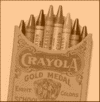newer log

Open-source Digital VirusImprove this in some way, then send a copy to all your interested friends and/or mailing lists, and/or post a copy to your weblog!
(Credit to Steve for the "improve before spreading" idea.)
Man, I spend every (weekday) morning reading newsgroups and mailing lists (and the occasional weblog) and answering the easy mail, then I eat lunch, and then the afternoon (which I always tell myself I'll use to Get Real Work Done) always gets devoured by meetings, interviews, and unexpected crises. I never seem to finish anything anymore!
It's a common SF notion that the future branches out into lots of possible futures. It occurred to me some time ago that the same is true of the past.

Assuming the universe isn't reversible (and the laws of thermodynamics suggest that it isn't), there are lots (and lots) of possible universal histories that lead to the state that's in place right now. So this second has lots (and lots) of possible pasts behind it (more the further back you go). Did one of them "really happen" in some sense? What sort of knowledge can we have about the past, given all these possible pasts, and in what sense is it true or useful to say that one of them "really happened"?
Consider the "really happened" thing. Ex hypothesi, if P1 and P2 are both possible pasts of the current instant, and P1 "really happened", there's no way I can find that out. That is, for any evidence I might have that P1 really happened, I would have exactly that same evidence even if P2 had happened instead (since by assumption P1 and P2 lead to exactly the same present). By the definitions of knowledge that I find reasonable, this means I can never know that P1 happened and P2 didn't.
Is the fact that P1 "really happened" useful, given that I can never know it (and, by the same argument, that it can never have any differential impact on my future)? I suspect not. Is the notion even well-defined? Not clear.
But we'd like to be able to make statements about the past and have them accepted as true, even though there's probably a possible past in which they didn't "really happen". For instance I'd like it to be true that "I was in the office yesterday", even though there's a possible past in which the universe simply sprang into being ten minutes ago (so there "really" wasn't any yesterday). I can (by definition) never have any evidence that that didn't happen.
I think when we say that a certain statement about the past is true, we mean that it's true in the best story of the past we've found; the best story that both fits the current facts, and satisfies our criteria for a good story. What makes a good story? Good question! *8)
"What do you have so many CDs for?""Well, I have a lot of different moods, and I like music to go with each different one."
"You mean to tell me that you have 800 different moods?"
"No, actually I probably have about 2000 different moods, that's why I'm always getting new things."
That's from Come to My Senses, a very cool page. The rest of that site is also worth a read; there's some very good stuff off of the "whatever" page for instance.
Everyone's logging the Kingdomality test, so you might as well take it also. Are you a benevolent ruler, a dreamer-minstrel (like me!), or something else?

Also popular: Mars Orbiter image gallery. The Red Planet up close and personal.
I saw this some time ago, but someone just reminded me of it: Wacky Court Cases (but beware the annoying background music). I especially like this one, in which a guy sues himself:
We have considered whether respondent / defendant / beneficiary should be awarded his costs of suit on appeal, which he could thereafter recover from himself. However, we believe the equities are better served by requiring each party to bear his own costs on appeal.
From Cryptome, the OpenLaw Amicus Brief in the "entire recording industry vs. some long-haired guys with funny names" case:
The 2600 website is as much a distributor of DeCSS as the Yellow Pages are distributors of pizza. 2600 is no more a supplier of DeCSS than the New York Times is a supplier of drugs when it reports that crack is being sold on a particular corner in Harlem or a court is by describing in an opinion materials it deems obscene and giving a volume and page number for the magazine where they are found.
Is someone stuffing the ballot box with turnips? Judge for yourself. And express your opinion if you haven't (or even if you have!).
Another snoop-system to opt out of! (from the latest PRIVACY FORUM).
Mysterious voices reading long strings of numbers on the shortwave! Listen to the NPR story, and get the 4 CD set! Great bedtime listening for you insomniacs! *8)
(Well, that was certainly miscellaneous!)

Memorial Day ChallengeThe craft store closed before you got there, so you went to Wal-Mart instead. You've just come home with three squirt-guns, a hula-hoop, and a box of Pop-Tarts (ick).
Your challenges:
- You have been assigned the green squirt-gun from the two-pack that the little boy bought (he wanted the red one). It has a serious crack in the handle, and water leaks out almost as fast as it can be put in. Take an active role in the celebration anyway.
- The squirt-gun the little daughter bought has about five times the capacity, and eight times the flow-rate, of the ones the little boy bought. Prevent this firepower mismatch from becoming a problem.
- It's seven PM, and a rather chilly late-spring day. See that no one freezes.
- You can't decide whether it's appropriate or terrible to be playing with toy guns on Memorial Day. Deal with it.
Your advantages:
- You forgot to halve the Toll House Cookie recipe on Saturday, and there are still some left.
- The kids involved are, speaking purely objectively, the best kids in the Whole World.
Man, sometimes I sound like one of the smarmier articles in Good freaking Housekeeping, don't I? A good time was in fact had by all (although it's not clear how much credit I can take for that!), and no one shows any signs of pneumonia. The cookies are all gone, and no one stuffed themselves with the Pop Tarts.
(Does anyone else remember a line from some play or movie or book or something that goes roughly "I'm a bit of a pop tart myself"?)
"I'm sorry, ma'am.""You're saying that what my family, my people, have been struggling for three generations to do, you can do with --"
"Half a ton of iron and three microcomputers. Yes, ma'am, that's correct."
"I hate you."
"I'm sure there's something else you can work on. You're good people."
Ars Digita is cool. They offer various free services to anybody who feels like signing up, including polls, mailing lists, discussion forums and whatnot, without the annoying paternalistic interfaces and forced ads of eGroups and such. I decided to try out a poll, so here's your chance to make your voice heard!
I'm not sure what's going on here, but it's kinda fun, in a "what's going on?" sort of way. (I suppose everyone will now write me that "Violin Music in the Age of Shopping" is a well-known whatever-it-is; go ahead, make my day! Note that I already know about Jon Rose.)
On asbestos crayons, a reader writes:

I've never heard of crayons catching fire. What color is asbestos, anyway? But it's true that some crayons break more easily than others. Also, some of them sound different going on, sort of a scratchy sound. Maybe that's the asbestos. Or maybe it's something else. Maybe it's just ordinary crayon skin. Did you know there used to be a color called flesh? I wonder whether a mint condition "flesh" is worth a lot these days.
Well in fact if you hurry you can get one on eBay for around five dollars (so far). It'd have to be an old crayon; Crayola at least changed it in 1962. (See also Crayola on asbestos and safety and stuff; boringly rational.)
French Court Says Yahoo Broke Racial Law (if the NYT asks you to log in, "cypherpunks/cypherpunks" still seems to work):
The real question put before this court is whether a French jurisdiction can make a decision on the English content of an American site, run by an American company ... for the sole reason that French users have access via the Internet," a Yahoo attorney Christophe Pecnard said.
I dunno; when someone uses a Web browser in France to talk to a company in the U.S., is the company doing business in France, or is the someone doing business in the U.S.? Neither and/or both, obviously!
top
earlier entries